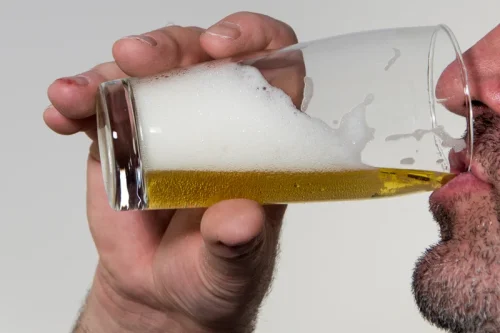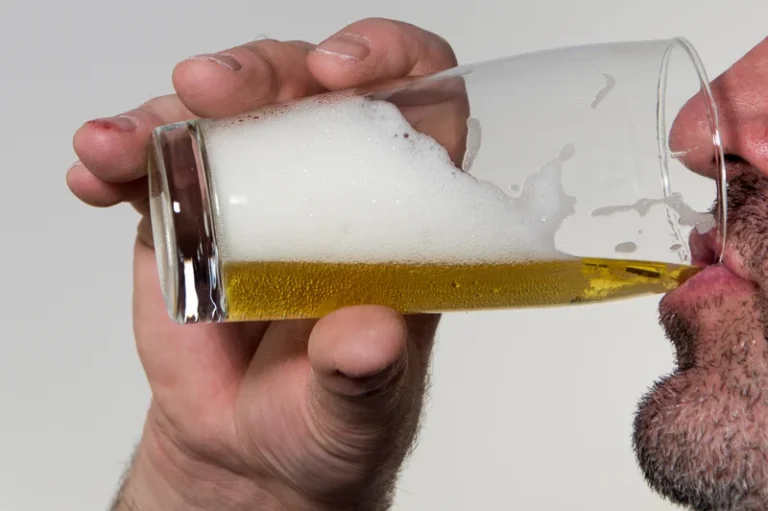
Someone who is dependent on alcohol and suddenly quits drinking will experience alcohol withdrawal symptoms. Night sweats can ruin your sleep quality and leave you feeling tired the next day. While many people experience night sweats on occasion, it may be a sign of alcohol use disorder (AUD).
Sweating From Alcohol Is Natural – To A Certain Extent
Repeated episodes can lead to poor sleep and then fatigue the following day. If night sweats continue to be a problem despite taking these measures, it might be indicative of a more serious underlying issue. However, there comes a point in the evening when your water intake can be offset by too much alcohol. This strategy works if you drink moderately but not so much if you binge drink. Drinking a glass of water for every alcoholic beverage may help stave off dehydration and dilute your blood alcohol levels (BAC), which are inherently helpful to your liver. If your mood is in the gutter or you’re experiencing hangxiety, the endorphins, norepinephrine, and other neurotransmitters released during exercise might make you feel better.
Evoke Wellness Addiction Treatment Programs

In this piece, we’ll go into detail on the relationship between alcohol and sweating, and what you can do to cope with alcohol-induced night sweats. I’ve spent the last seven years researching and understanding alcoholism, addiction, and how people get sober. Additionally, I examine the way mental and physical health as well as our relationships with others impact the reasons people drink and their role in maintaining sobriety long-term. Alcohol withdrawal symptoms can kick in a few hours after your last drink or several days later.
Night Sweating
- If they’re severe, you may awaken several times every night to change your clothes and bedding.
- For those who sweat heavily—evidenced by wet clothes or white salt lines on the skin—restoring these lost resources through hydration is essential.
- Exercising and producing sweat will only dehydrate you further, especially if you haven’t drank enough fluids or replenished your electrolytes.
- Alcohol can cause the heart rate to quicken or the heart rhythm to become irregular.
- Fortunately, there are new alcohol reduction options that do not require you to identify as an alcoholic, or even quit completely.
With alcohol intake, the blood vessels in the skin tend to widen when the heart rate speeds up. See your doctor if you’re not sure what’s causing your night sweats or if you have accompanying symptoms. Getting night sweats from alcohol consumption may indicate symptoms of a drinking problem. The severity of your symptoms is proportional to your alcohol intake, according to Mayo Clinic. If you are experiencing these effects or believe your drinking has gotten out of hand, talk with your doctor or other trusted professional. Many experts say this is due to the way alcohol stimulates a person’s hypothalamus, which alters the hormones and chemicals in the body.

After an extended period of drinking, the brain and body learn to expect alcohol in its system. The central nervous system enters a hyperactive state in order to counteract the depressive effect of alcoholism alcohol. This is often called “alcohol dependence.” When alcohol is then removed, the central nervous system remains significantly over-excited. This causes heart rate to increase and blood vessels to widen, leading to sweating and other uncomfortable and potentially dangerous symptoms.
Prevention and Long-Term Management

If this is the case, alcohol detox does drinking make you sweat and addiction treatment will be very helpful. A person should speak with a doctor if these symptoms do not improve. Without diagnosis and treatment, it could lead to liver complications. A person may not experience any symptoms or signs of liver damage or scarring, which people call cirrhosis, until the liver is badly damaged. Sometimes, a person may appear to have alcohol intolerance but react to another ingredient in a drink.
Why do I sweat after alcohol?
For many, this precedes a stay in one of our leading rehab centres located across the UK. Delirium tremens symptoms generally occur within 2 to 4 days of your last drink. In rare cases, they can be serious enough to be life threatening. If you or someone you love is experiencing these symptoms, you should seek medical attention immediately. Remember that night sweats can also be a sign of an underlying medical condition or lifestyle factor. In some cases, cutting back on or quitting alcohol may be one component of this plan.
Night sweats are a common symptom of alcohol withdrawal, which often affects people with alcohol use disorder (AUD). Managing alcohol-related night sweats involves a combination of lifestyle adjustments, proactive hydration, and environmental tweaks. By adopting these strategies, you can significantly reduce the impact of night sweats and improve your overall sleep quality and health. If night sweats persist or are accompanied by other symptoms, https://ecosoberhouse.com/ it’s important to seek professional medical advice to address potential underlying health issues.
